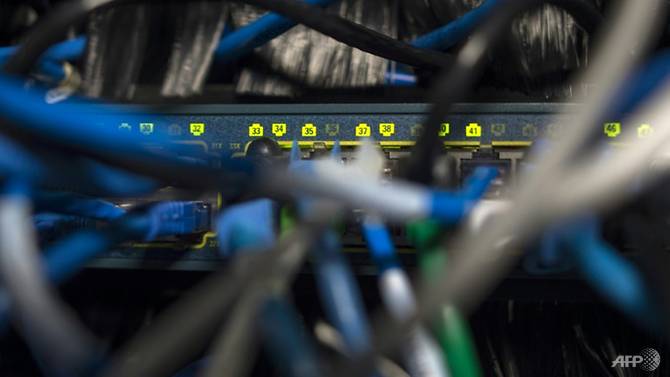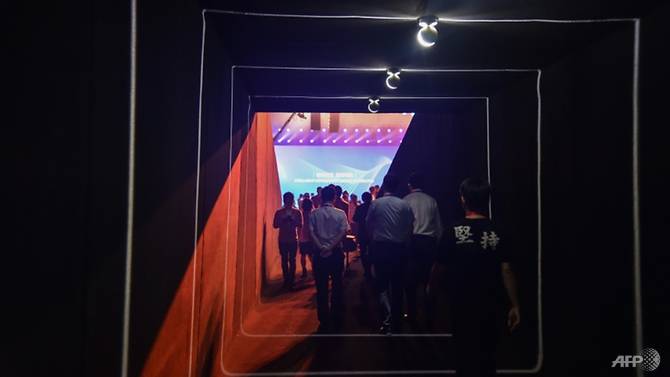`
Cryptocurrency Not To Be Considered 'Legal Tender'; Centre To Treat It Like Stocks & Bonds
;
Legal Tender? The Regulation of Cryptocurrencies
Cryptocurrencies will never become legal tender
`
Demystifying Crypto: Digital Assets and the Role of Government
Cryptocurrencies not recognised as legal tender in Malaysia, says deputy minister

Useful assets:Although digital assets are not recognised as legal tender, Yamani added it still has many different usage including as a class asset that can be invested in
Cryptocurrencies are still not recognised as legal tender in Malaysia as they do not exhibit characteristics of universal money, says Deputy Finance Minister II Yamani Hafez Musa.
Yamani said cryptocurrencies, also known as digital assets, are also not a payment instrument that is regulated by Bank Negara.
`
“Digital assets such as bitcoin and Ethereum are not suitable to be used as a payment instrument as these assets do not exhibit characteristics of money.
`
“In general, digital assets are not a store of value and a good medium of exchange.
`
“This is due to the state of digital assets which is exposed to volatility as a result of speculative investments,” he said when replying to a question raised by Nurul Izzah Anwar (PH - Permatang Pauh) in Dewan Rakyat on Thursday (March 3).
`
Nurul Izzah had asked about the government’s role in monitoring and regulating currency as well as cryptocurrency assets.
`
She also asked if the government had any plans to create digital currency taking into account Bank Negara’s involvement in Project Dunbar for international money transfers using blockchain technology.
`
In explaining the volatility of cryptocurrency, Yamani said bitcoin hit a peak of US$65,000 (RM272,382.50) in April 2021 but quickly saw a decline of 50% the following week.
`
He also said cryptocurrency is exposed to the risk of theft in which statistics from 2011 to 2021 showed that digital assets worth US$12bil (RM50.29bil) have been stolen through cyberattacks and hacking.
`
He added that bitcoin is also only able to process 10 transactions per second compared to 65,000 transactions per second on current payment systems such as Visa.
`
“Also, what is important is the huge impact on the environment because the electrical power that is used to process one bitcoin transaction can process 1.2 milliob visa transactions.
`
In 2020, the bitcoin network used 132 terra-watts per hour which is equivalent to the entire electricity consumption of Argentina,” he said.
`
Yamani added that currently, Bank Negara has also not decided to issue a central bank digital currency (CBDC) as the country’s domestic payment systems including the Real-time Retail Payments Platform continues to operate safely and efficiently to support Malaysia’s economic needs and allows real-time digital payments.
`
“Additionally, the monetary policy tools and existing finances also remain effective in maintaining monetary stability and the country’s finances,” he said.
`
Although digital assets are not recognised as legal tender, Yamani added it still has many different usage including as a class asset that can be invested in.
`
As such, he said the Securities Commission (SC) as the market regulator has set digital assets as a security under the law and is responsible to regulate its trading activities.-
Source link
Related posts:
BLOCKCHAIN beyond Bitcoin
What is Blockchain Technology, its uses and applications?
What is Blockchain Technology, its uses and applications?
Govcoins and crypto to coexist
Sting operation on bitcoin-mining power theft racket nets 18 suspects Eighteen people have been arrested in relation to the bitcoin mining s..Blockchain: Internet of Value/ Currency of Trust; Private cryptocurrency a misallocation among blockchain technology, say research & economist
China gets into blockchain race with US
China's new digital currency
On Mcoin, Bitcoin and points of investment
Related:
China's Bitcoin trading plunges to 10% of global share from 90%: central bank
China's Bitcoin trading has plunged to 10 percent of global share from 90 percent, and the country has effectively curbed the speculation of crypto currency trading as part of an effortto fend off domesticfinancial risks and restore financial order, the central bank said on Thursday.




















